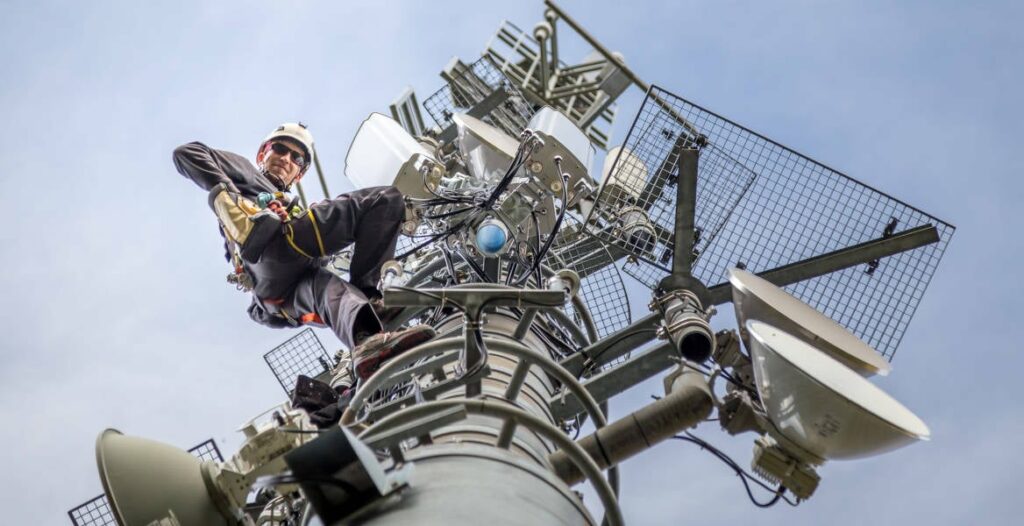The Federal Communications Commission (FCC) has released the final text of its net neutrality order, adding changes that appear to rule out so-called “fast lanes” for applications that some advocates feared would undermine it.
America’s telecoms regulator voted last month to adopt an order to reinstate net neutrality rules overturned by the Trump administration. These reclassify internet access as a “common carrier” service under Title II of the Telecommunications Act, requiring service providers to treat all traffic equally.
Yet there had been concerns raised that new technology introduced with 5G networks would allow the creation of what had been labelled “fast lanes” for some applications, for which the carrier would be able to charge a premium.
In other words, while telcos would be banned from throttling user connections, they might achieve the same effect by offering a paid-for boost instead.
The Electronic Frontier Foundation (EFF) made exactly this point following the FCC’s release of the draft rules.
“The FCC seems to think that it’s not okay to favor certain sites or services by slowing down other traffic, but it might be okay to favor them by giving them access to so-called fast lanes such as 5G network slices,” it said at the time. “Whether your access to Spotify is faster than your access to Bandcamp because Spotify is sped up or because Bandcamp is slowed down doesn’t matter, because the end result is the same.”
The final version of the order now contains text that says: “We clarify that a BIAS (Broadband Internet Access Service) provider’s decision to speed up ‘on the basis of Internet content, applications, or services’ would ‘impair or degrade’ other content, applications, or services which are not given the same treatment.”
The technology that sparked those concerns is network slicing, a feature of 5G enabled with the rollout of full 5G Standalone (5G SA) networks. This can be likened to virtualization for networks, allowing multiple logical networks, each with different characteristics, to operate over the same infrastructure.
Some experts expressed doubts that network slicing was really going to be used by telcos in the way net neutrality advocates feared, but the final text appears to have reassured some that this has now been avoided.
“That means an ISP can’t provide preferential treatment to select apps or categories of apps such as providing more bandwidth, reducing delay, or guaranteeing quality of service,” said Stanford Law Professor Barbara van Schewick, referring to the new wording.
AT&T, Verizon, Sprint, T-Mobile US fined $200M for selling off people’s location info
FCC votes 3-2 to bring net neutrality back from the dead
America may end up with paid-for 5G fast lanes under net neutrality anyway
China orders its telcos to rip and replace US chips with homegrown silicon by 2027
The clarification replaced a vague, case-by-case standard for speeding up in the draft order, Van Schewick claims, one that would have inevitably led to protracted, drawn out fights at the FCC over what kinds of 5G fast lanes would have been okay, and which would have made it difficult for smaller customers to bring complaints.
“There was no way to predict which kinds of fast lanes the FCC might ultimately find to violate the no-throttling rule. This would have given ISPs cover to flood the market with various fast-lane offerings, arguing that their version does not violate the no-throttling rule and daring the FCC to enforce its rule,” she commented.
ISPs remain free to offer network slices to enterprise customers, the professor stated, citing as an example autonomous carmakers that might use the technology for mobile services to receive telemetry.
“The new order has brightline rules that prevent blocking, throttling, and paid prioritization, and it ensures that ISPs can’t use new tech capabilities to create unfair fast lanes that favor particular apps or kinds of apps,” Van Schewick said, adding: “This is a win for competition, innovation, and free speech.” ®
>>> Read full article>>>
Copyright for syndicated content belongs to the linked Source : The Register – https://go.theregister.com/feed/www.theregister.com/2024/05/09/fcc_slams_banhammer_on_5g/
